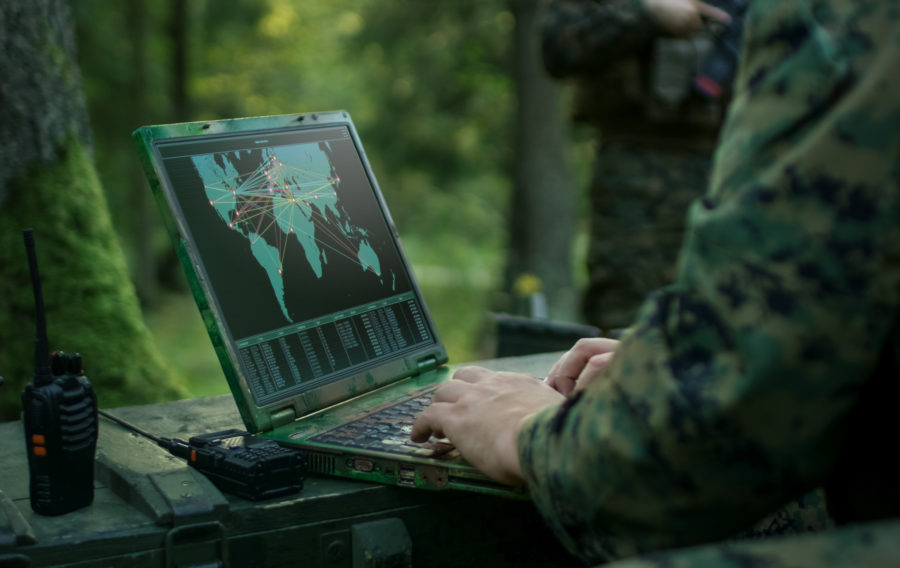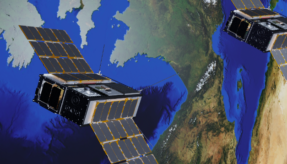
Alexandra Stickings, Research Analyst, Space Policy and Security at RUSI, examines the challenges of integrating space technology into the defence realm.
Given some of the reactions to President Trump’s announcement of his plans to create a Space Force, and indeed also to the UK’s planned Defence Space Strategy, it is possible for some to underestimate, or not believe at all, the role that space has come to play in defence. Yet the potential military applications of space have been recognised since the 1950s, even before the first satellite was launched into orbit.
Throughout the 20th century, developments in space technology were continually adopted into militaries, and often driven by them. Indeed, the Gulf War of 1991 is generally considered to be the first conflict in which space was thought to have played a major role, in particular through the use of GPS for precision navigation and positioning. As a result, space capabilities have become embedded in the majority of military activities. However, the current paradigm of NewSpace, or Space 2.0, has seen a huge increase in both the number of new actors and the variety of new technologies available. The question is whether, given the vulnerabilities of space-based systems, as well as what could be seen as a general technological fetishism within defence, the increasing role of space technology could prove to be a weakness for Western militaries.
Perhaps the most ubiquitous of these technologies is the position, navigation and timing (PNT) signals from Global Navigation Satellite Systems (GNSS) such as GPS. PNT is used for everything from maritime navigation to precision weapon targeting, as well as a host of other security applications such as energy distribution and transportation. Yet GNSS systems are vulnerable to jamming and spoofing, potentially undermining the trust in them; and for the UK in particular, it is still unclear what the situation will be in terms of access to secure Galileo signals following Brexit.
Recent developments in earth observation (EO) have also been taken up by defence, as both the resolution and the ability to view the surface in multiple wavelengths continue to improve. However, as their use becomes more widespread and provides their users with ever-better visibility of the Earth’s surface, these satellites may become targets of those wishing to deny access to these same users, particularly within the context of intelligence, surveillance and reconnaissance. Threats in this area may come from counterspace capabilities, which themselves are the result of technological advancements.
There are also new space technologies that have been developed that at first glance do not seem to have a relation to defence and yet could prove to play a big role. An example is close proximity and rendezvous, which provides satellites with manoeuvring capabilities allowing them to approach other satellites. While such programmes have been part of defence space programmes in Russia and the USA for many years, much of the progress has moved to the commercial sector and is being aimed at creating satellites capable of on-orbit servicing and debris removal. While both of these activities are beneficial to the space environment, the use of this technology is also causing concern, as evidenced by the recent reaction of the United States to the ‘abnormal’ behaviour of a Russian satellite.
Such capabilities bring into focus broader questions about the nature of conflict in space, such as what constitutes a hostile act and in which cases a satellite operator may perceive that it is being threatened. The unique environment of space means there is an inherent ambiguity in the intent behind some activities that do not allow these questions to be easily answered.
It is clear, therefore, that defence has recognised the opportunities available from space technologies, and of course it would be counter-productive to suggest that they should not be taken up when there is a clear benefit to operational effectiveness. However, there are two key issues that should be taken into account when considering the further integration of space-based capabilities.
The first concerns the reliance of defence on space technology and the extent to which this will increase in the short to medium term. The prevalence of GNSS across defence is interrelated with a more general move towards precision at the expense of mass. Yet despite recognition of the threats to space assets, there is little to suggest that enough is being done to ensure continuity of activities in the case of loss of access.
The second concerns the ideas and intentions behind the technological developments. The increase in the number of private sector actors within the space sector has resulted in more and more new developments. While this can be seen as providing more of a choice for those in defence procurement, caution is required to ensure that they are not purely reactive to these developments but are also thinking carefully about what it requires operationally. Integrating space technology into defence in a positive way needs a combined effort between the military and industry, working side by side to achieve the optimum outcome.
If you would like to join our community and read more articles like this then please click here.
Alexandra Stickings Defence Space Strategy President Trump RUSI Space technology







